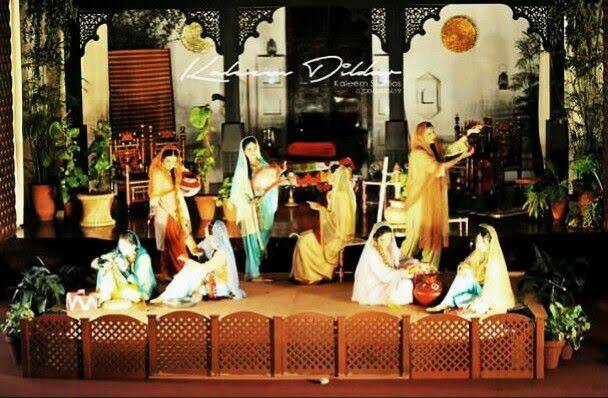On Shakespeare’s birth anniversary last year, the Globe Theatre touring the whole world, re-enacting Shakespearean plays, handpicked Kinnaird College solely out of the whole country as its venue to stage Hamlet. All credits for this glorious accomplishment are directed towards none other than the Kinnaird College Najmuddin Dramatics Society. The Society traces its history back to 1950s, when it started engendering productions on a massive scale. The society’s hallmark has been its flawless efforts in re-enacting Shakespearean and Shavian plays with the same fervor and zest with which it has produced bilingual home productions. It is not only one of the chief pioneers of theatre in Pakistan, but has earned veritable international recognition over the course of time, producing plenty of incomparable actors in modern times including Shamim Hilali, Madiha Gauhar and Nadia Jamil.
This year, a radiant performance was staged that not only mesmerized the audiences as a reflexive action, but was also one that would assuredly remain firmly deep-seated within the minds of the watchers for many coming years whenever they would come face to face with the poetic romance, Heer Ranjha. Kinnaird College for Women’s Najmuddin Dramatics Society based its annual play this year upon the vibrant Punjabi cultural paraphernalia. With the blinding effulgence of color and panache, the fecundity of flowers, traditional diyas and the most accurate standards of lights and sounds, Thus Heer Spoke was truly a masterpiece.
Dr. Nadia Anjum, who is the Advisor of the Najmuddin Dramatics Society and Head of the MA/M.Phil English Literature Department at Kinnaird, herself wrote the script, bringing together verses from the sufi poetry of Munir Niazi, Hazrat Sultan Bahu, Hazrat Baba Bulleh Shah and Waris Shah’s Heer. The play was one well-scripted, thoroughly researched and a versatile, multi-textual one. The play highlighted nefarious incongruities in the society and how its various factions like religion, the social gaze and the common conventionalities cave in at a woman, marginalizing her to the peripheries. The Heer in the play voiced her inner consciousness, her mental turmoil and the psychological baggage that she was fronted with—this in itself was an idea conceived by the Najmuddin Dramatics Society: to embed the script in a background that could serve as a vehicle for the articulation for all muzzled women in this part of the region.
The play spoke on behalf of all girls who are introduced to a readymade formula of life that they are required to strictly adhere to. The play showcased how by venerating social principles taught by mothers and other matriarchs in the household, girls might become women emblematic of social perfection later in life, but in the process of making them pay acquiescence to the “does and don’ts” of life, they are dispossessed of their fundamental right to be themselves and retain their individualities. The Heer in the play presented modern arguments which emphasized on her being the voice endeavoring to break away from the swaddles of imprisoning social constructs that otherized her within the four walls of her own house.
The whole script being in wholesome Punjabi linguistic facility and backed with the lushness of a metaphysical narrative enhanced the pristine expression of the play. From the seven sahelis of heer representing the seven levels of mysticism, to the beggar articulating a poetic gesture in argument of the masts of social constructs, symbolically acting as a chorus and reciting Hazrat Baba Bulleh Shah’s and Sultan Bahu’s sufi aphorisms, made the play display a collage of traits from Grecian tragedy and Punjabi folklore with a socio-political dimension to it.
Even the most miniscule of the details regarding costumes, accessories and stage props were taken special care of by Dr. Nadia Anjum and the President, Syeda Minaal Ali.
After months of investing sheer hard work and burning midnight oil, the unremitting and incessant efforts by the team bore fruit and the play became a massive hit, enticing huge crowds for four consecutive days. It can be undoubtedly stated that Thus Heer Spoke has become an essential part of Kinnaird’s heritage; not only has it carved a niche for itself in the records of theatre and drama, but has also become a play that has introduced new standards and avenues for motivations to produce such literary marvels in the times to come.






